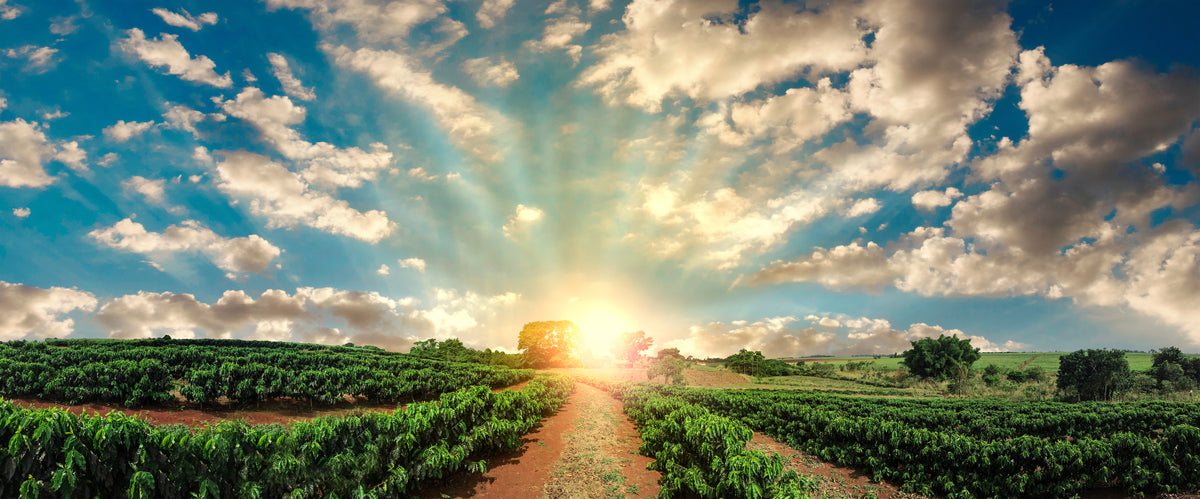As we continue to celebrate Earth Month, we’re taking a look at coffee's environmental impact on the planet. We also want to share how sustainability efforts throughout the coffee industry have evolved to reduce the carbon footprint of your coffee. Here are ten eye-opening statistics that will help you see your daily cup of coffee in a whole new light.
- Coffee was one of the first commodities to embark on sustainable practices. With 25 million smallholder farmers depending on coffee farming for their livelihoods, sustainability ensures fair wages and is a crucial aspect of improving the lives of millions across the globe. Source
- Over 9.5 billion kilograms of coffee are produced annually, with demand expected to triple by 2050. Hence, the identification and quantification of coffee's greenhouse gas emission footprint are essential for it to become a more sustainable crop. Source
- In the United States alone, 400 million cups of coffee are consumed every day. Sixteen billion disposable coffee cups are used each year, according to earthday.org, so swapping the disposable cups for a mug, thermos, or other re-usable cup is a massive step in sustainability that's easy for everyone to take part in. Source
- Roughly 70% of the coffee grown globally comes from smallholder farmers. Sustainable farming results in better coffee quality, productivity, and prices, not to mention ensuring these small farms continue for generations. Source
- Nearly half (48%) of the global coffee crop is now being produced under some sort of sustainability standard. This includes direct trade, certification, transparency, traceability, and verification of the coffee crop. Source
- Sustainable coffee production could reduce coffee carbon emissions by nearly 80% compared to conventional production. Various measures like using fewer agrochemicals, transporting beans via ship rather than flight, and roasting beans at the origin have significantly reduced carbon footprint. Source
- The cultivation of coffee beans makes up the most significant climate impact of the entire coffee life cycle. Farming and processing make up 68% of coffee's climate impact, brewing contributes 11%, and transportation, roasting, and packaging are less than 4% combined. Source
- We often think of our carbon footprint and carbon neutrality when we think of sustainability. But we also need to consider our water footprint and water neutrality. The global average water footprint of one 125 milliliter cup of coffee is 140 liters—more than two eight-minute showers' worth of water. To become water neutral, every effort should be made from farm to kitchen to reduce water usage to its bare minimum. Source
- A core tenet of sustainability is income and fair treatment of workers. Between 20 and 30% of coffee farms are female-operated, and women provide up to 70% of labor in coffee production. Unfortunately, women have systemically lower access to resources like land, credit, and information. Closing the gender income gap in coffee farmers would boost global agriculture output by 2.5-4%. Source
- Scientists have determined an inexpensive, low-tech practice called carbon farming can significantly reduce carbon emissions and, in effect, draw down the carbon from the atmosphere back into the earth. The world's cultivated soils have lost between 50 and 70% of their original carbon stock. Carbon farming can reverse this loss. For example, if compost were applied to 5% of California's grazing land, it could store a year's worth of emissions from conventional farms and forestry operations. Boost that to 25% of grazing land, and the soil would absorb 75% of California's total annual emissions. Coffee agriculture embracing this practice would set the course for a profound shift in sustainability. Source
We hope that these statistics and references give you some tangible concepts and information to consider when it comes to your daily cup of coffee. While there is much work to do, we believe the coffee industry is up to the task and is in the process of becoming a shining beacon of sustainability in the years and decades to come!












